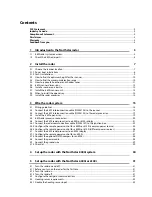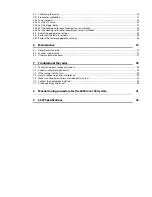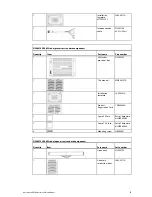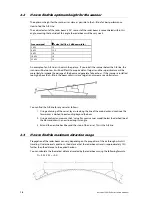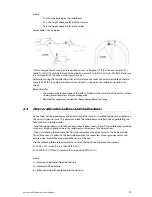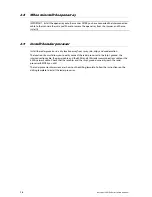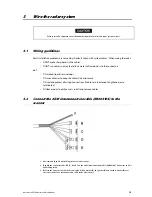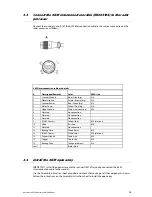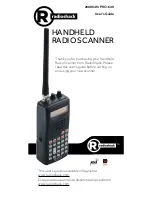
2
Install the radar
A radar unit should only be installed by a qualified marine technician, as potentially lethal high
voltage is present along with heavy rotating parts. There is a transmit interlock that prevents radar
transmissions if the scanner is not rotating. However, a high voltage remains for a period of time after
the system is turned off. If you are not familiar with this type of electronics, consult with a trained
service or installation technician before attempting to service any part of the equipment.
Installation includes
mechanical mounting
electrical wiring
configuring the 6000i or 6100i system or 8000i system to work with the radar
adjusting the radar for proper performance.
Don't take any shortcuts, and follow these instructions carefully.
NOTE: For the radar overlay to function properly on the chart screen, you must correctly install and
calibrate a separate heading sensor. Without the heading sensor, you cannot overlay the chart.
A 10 Hz heading output rate is required for best radar/chart overlay performance.
This section explains how to:
choose the correct location for the scanner
install the scanner on a power boat or a yacht
choose the correct location for the radar processor
install the radar processor
Read the important warning and safety information in the Preface before you install the radar.
2.1
Choose the scanner location
The radar's ability to detect targets depends greatly on the position of its scanner. The ideal location
for the scanner is high above the vessel's keel line where there aren't any obstacles.
The higher the installation position, the longer the radar ranging distance, but the minimum range
that the radar can detect targets increases the higher that the radar is mounted.
Also see the sections on installing the scanner on a power boat or yacht.
When you're deciding on the location, consider the following:
the length of the interconnection cable supplied with your radar is usually sufficient. If you
think you'll need a longer cable, consult your Northstar dealer before installation, because a
longer cable may reduce the performance of the radar.
if the roof of the wheelhouse is the highest existing location, consider installing a radar
mast or a pedestal on which you can mount the scanner. You may also need to construct a
working platform for your own safety during installation and servicing work.
if you mount the scanner on a pedestal or base, ensure that rain and sea spray can drain
away from it rapidly.
if you locate the scanner on the mast, position it on the forward side so that there is a clear
view to the front of the vessel.
the scanner is usually installed parallel to line of the keel
ensure that the location site provides the scanner with a clear view of the front of the
vessel.
Northstar 6 kW Radar Installation Manual
7




